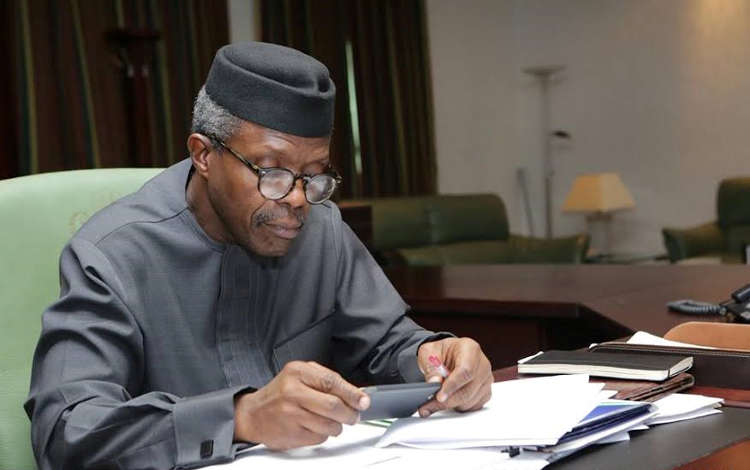The Federal Government will on Thursday begin a multi-billion-Naira provision and distribution of grains, especially for Internally Displaced Persons (IDPs) in the North East.
A statement by the Spokesman of the Acting President, Mr Laolu Akande, on Wednesday, noted that the grains distribution was a significant move by the President Muhammadu Buhari administration to address the food crisis in the region.
He said that the crisis followed the insurgency in the North-East.
Akande noted that the acting President would launch the quarterly Special Relief Intervention plan, which would cost about N8 billion, to benefit no fewer than 1.8 million people.
He added that about 40,000 tonnes of rice, maize, sorghum and soya beans grown locally by Nigerian farmers would be distributed, with each family receiving about 50 kg of grains per month.
He explained that “the new mode of distribution plan is that it eliminates the undignified practice of long and often problematic queues, as the grains will be delivered from door-to-door to the IDPs.”
Akande said that the model would deploy a pre-issued voucher-system that would promote transparency and accountability.
“The new plan is also expected to correct many of the lapses observed in delivering relief to IDPs,’’ the spokesman said.
He noted that the relief would be distributed by officials of the National Emergency Management Agency (NEMA), in partnership with State Emergency Management Agencies and developmental partners from international humanitarian agencies.
He affirmed that the Federal Government would buy the grains from Nigerian farmers with active involvement of the Nigerian Police and the Military in providing essential and logistical support.
According to Akande, about 1,032 trucks will be used to deliver the grains quarterly, while locations difficult to reach by road will be supplied by the Nigeria Air Force.
“While the Federal Government is providing food assistance, it will work with the state governments to provide other forms of assistance, including health services, education, resettlement and livelihood support,’’ he added. (NAN)
DCU/HA

